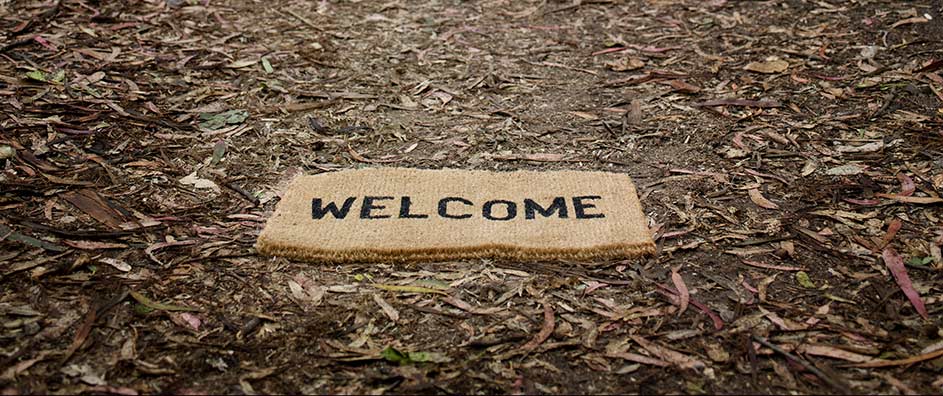Embarking on the spiritual journey toward Bahá’í teachings often feels like a metamorphosis, an unearthing of profound insights that previously lay hidden, much like a seed that bursts forth into a blossom after a season of nurturing. The concept of being “born again” within the Bahá’í faith does not conjure the same imagery as traditional interpretations, but rather suggests an awakening to a new paradigm of existence, a transformation that is as enriching as it is illuminating.
In numerous religious contexts, the term “born again” invokes the idea of a radical and dramatic conversion. However, within Bahá’í philosophy, this term encompasses a more nuanced understanding—a rebirth into a reality that transcends the material confines of life. Bahá’ís believe that spiritual evolution is perennial, akin to the perennial river that nourishes all who are fortunate enough to venture near to its banks. Through participation in the Bahá’í community, individuals may undergo a profound transformation, gaining insights that reinterpret their previous life experiences.
The first step in this spiritual rejuvenation often stems from a potent realization—the acknowledgment that the pursuit of spiritual truth is not solely an individual endeavor but a collective one. This ideation piques curiosity, catalyzing an essential inquiry into the role of community in spiritual practices. Bahá’í teachings espouse a mechanism for growth through communal engagement, underscoring that each soul’s evolution contributes to the collective spiritual tapestry.
At the heart of Bahá’í beliefs is the notion of the oneness of humanity. This foundational tenet prompts individuals to question sociocultural boundaries—race, class, and religion—and invites them to conceptualize a world where unity prevails over division. Such an expansive perspective necessitates a profound inward shift. It encourages adherents to reconsider their preconceived notions, facilitating a powerful cognitive shift towards empathy and understanding.
Moreover, the Bahá’í framework posits that each individual has intrinsic worth and possesses an exalted purpose. This sanctification of the individual ignites a thirst for knowledge and enlightenment that propels seekers along their spiritual journey. By embracing personal responsibility for one’s own spiritual development, Bahá’ís engage in rigorous study of their sacred texts, supporting an environment rich in discourse and reflection.
One may ponder: how does one begin this journey of transformation? The process of becoming “born again” in a Bahá’í context is marked by an active engagement with key principles, including equality, justice, and the harmony of science and religion. These principles serve as milestones on the path to spiritual awakening, guiding individuals toward a deeper understanding of themselves and their place in the universe.
First and foremost, a commitment to the principle of equality—regardless of race or gender—is fundamental. This fervent belief extends into the very fabric of Bahá’í communities, engendering an environment where all voices are heard and valued. For many, this collective consciousness forms a transformative aspect of their spiritual evolution. Such inclusivity invites individuals to step beyond the boundaries of personal biases, facilitating a broader, more compassionate worldview.
Secondly, the emphasis on justice within Bahá’í teachings propels individuals toward integrity. The notion of justice transcends mere legalistic interpretations, encompassing moral rectitude, fairness, and the active pursuit of truth. A diligent examination of one’s own biases and actions in light of justice can lead to profound self-discovery and an enriched spiritual experience. Embedding justice in one’s life catalyzes the heart’s awakening, enabling deeper connections with others.
The harmonization of science and religion also emerges as a pivotal existential inquiry. Bahá’í teachings advocate for an erudite investigation into both realms, positing that spiritual truths and scientific laws coalesce to enrich human understanding. This duality cultivates a mindset open to questioning established norms and enhances one’s capacity to grasp the complexities of existence. The synthesis of these domains engenders a clarion call to seek knowledge as an intrinsic virtue and a conduit for spiritual evolution.
Engagement with the arts and community service further enriches this journey. The Bahá’í faith encourages individuals to utilize their talents in creative expression as a means of glorifying the divine and contributing to societal betterment. Whether through music, visual arts, or writing, such contributions foster a richer community life and help deepen one’s spiritual understanding.
The transition to a Bahá’í way of life also necessitates the cultivation of virtues—qualities that resonate on both a personal and communal level. Values such as kindness, forbearance, humility, and service emerge as foundational elements of a transformed life. The practice of these virtues, akin to an artist refining their craft, demands patience and dedication. It is within this ongoing process of self-improvement that countless Bahá’ís experience their own transformation, arriving at a deeper appreciation of divine attributes.
Ultimately, the experience of being “born again” into the Bahá’í faith is less about doctrinal adherence and more about a deep and abiding relationship with the divine, along with a commitment to the betterment of humanity. It invites a reevaluation of life’s purpose, fostering an exhilarating experience of shedding old paradigms and embracing a more profound existence—a journey enriched by the unity of fellow seekers.
In conclusion, the spiritual awakening that many experience when they embrace Bahá’í teachings stands as a testament to the intricate layers of existence and the transformative power of community. By fostering unity, championing justice, and harmonizing change, individuals embark on an unexpected pilgrimage of the heart and mind, unveiling truths that ultimately transform not only themselves but the world around them.
